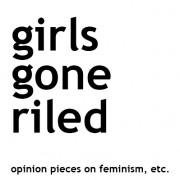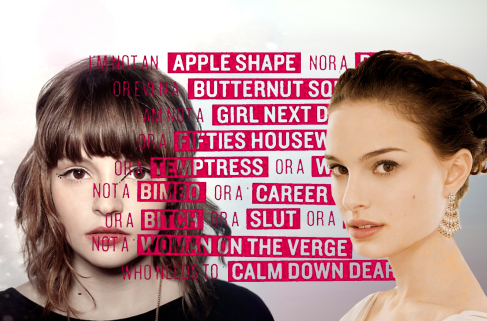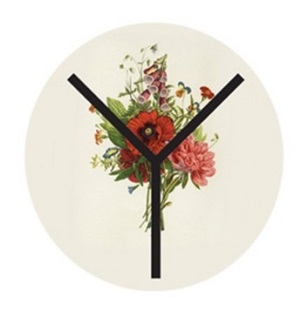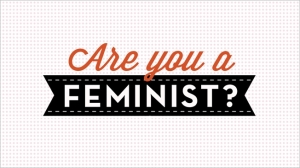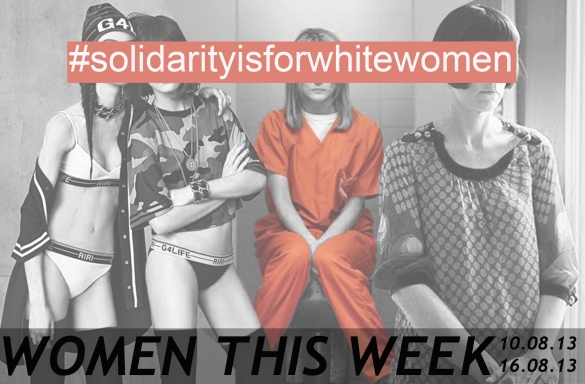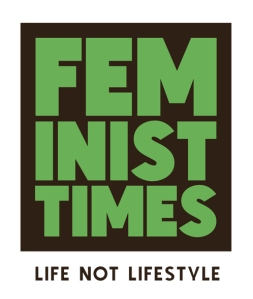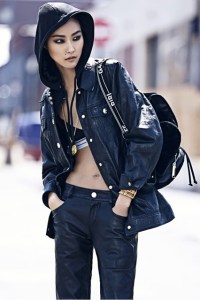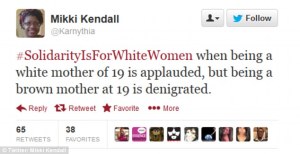Why what celebrities say in interviews does matter, why Elle’s half-hearted ‘rebranding’ of feminism could still be a good thing, and why we’re less than bright eyed and bushy tailed about Project Bush.
1. PROJECT POINTLESS?
Most people’s first reaction to Project Bush was “is this some kind of nickname for the Iraq war?” and their second was some variation on “meh”, “hmm” or “why?” Mother London, an ad agency that has taken it upon itself to launch two different advertising campaigns, both aiming to help women out through snazzy graphic design and high production values, launched Project Bush on 3rd October and their ‘rebrand’ of feminism (see below) in Elle’s November edition. This pincer movement was presumably meant to give an air of world takeover to the whole thing, but both campaigns seem to have fallen a little flat.
Project Bush will get women to photograph their pubic hair as a “call to action for women to stand up to the pressures of modern society.” This ‘call to action’ has so far received two mildly pessimistic writeups in the broadsheets – the gist of both was essentially “no, don’t fancy doing that, thanks”. As one of these authors points out, an obsession with body hair as a route to equality implies too heavily that ‘bush’ is feminist, ‘wax’ is not – when the whole thing should really be about choice.
2. CHVRCHES SEEK SANCTUARY
Lauren Mayberry, lead singer of electronic band CHVRCHES, posted this screenshot on Facebook this week with the message:
Dear guys,
Please stop sending us emails like this. This is one of the more polite ones. Other recent classics include “I’m going to give her anal” and “I’d fuck the accent right out of her and she’d love it”. (No you wouldn’t; no, she really wouldn’t.)”Seriously. Stop.
K, tks, bye.
Within hours, the post received thousands of abusive comments, including “This isn’t rape culture. You’ll know rape culture when I’m raping you, bitch” and other kindly tidbits. She wrote a piece in The Guardian about the experience which questions the “status quo” of online misogyny, and how most people, given anonymity and something to throw rocks at, are more than willing to throw any rocks they can get hold of.
3. PORTMAN KICKS ASS
Natalie Portman, in an interview with Elle this month, made the point that strong women in films don’t have to be “kick-ass” to tick feminist boxes – that “weak, vulnerable” characters were just as important to portray. While it’s true that we shouldn’t worship every semi-sensible thing Portman says just because she’s a famous actress, it is also important that she bothered to use a run-of-the-mill interview with a glossy magaizine to talk about things that really are important – she also touches on gender equality, equal marriage and her belief that “anyone should be able to do whatever they want sexually without being called names”.
4. PROJECT POINTLESS? PART II
Mother London’s second attempt to design the hell out of feminism was, like Project Bush, a symphony of failed, well-meaning hashtags and ‘buzz’ that went nowhere. The campaign, which was in collaboration with Elle and ad agencies Brave and W+K, had impeccable pedigree – the Vagenda girls and Charlotte Raven (of Feminist Times) worked with the agencies to produce the final images, but the finished article didn’t even get a plug on Elle’s cover. Yet even if the campaign landed with a whimper rather than a bang, the final message is, perhaps, still positive: an ad agency and a glossy magazine thought it was in their commercial interests (because those are, let’s face it, the only interests they care about) to get involved in this whole ‘feminism’ thing. And if we’re being cynical (which of course we always are) then it’s clear that the moment feminism becomes marketable and monetisable is the moment when people who otherwise couldn’t give two hoots about feminism will start taking notice.
